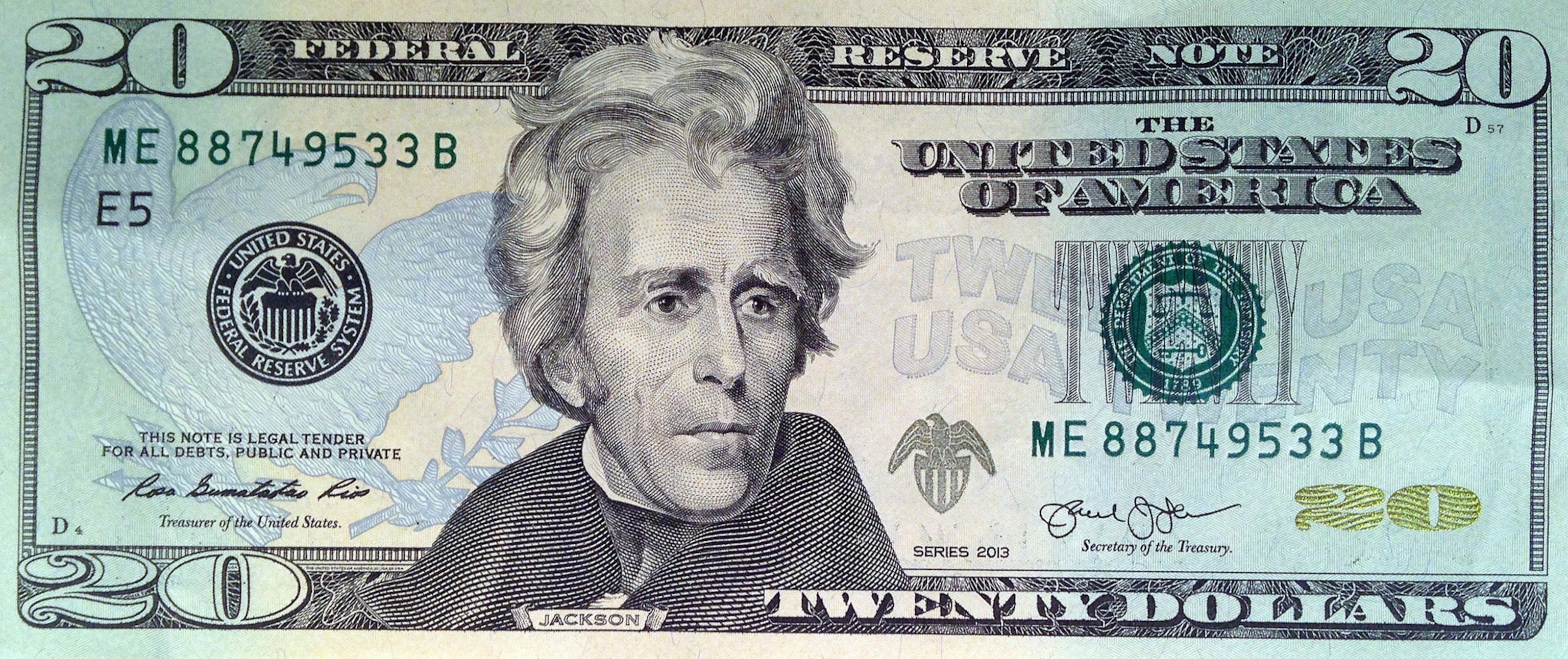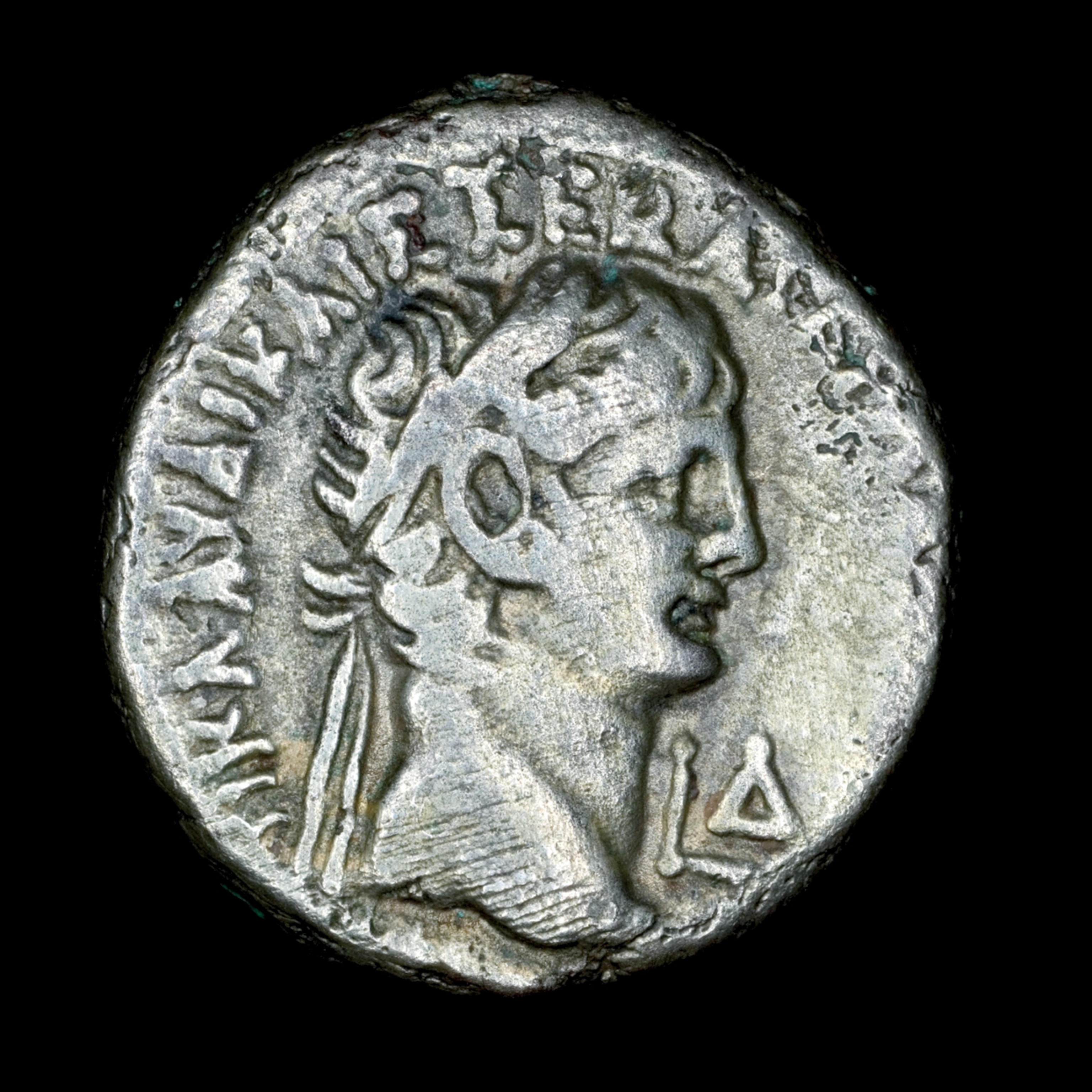
As Andrew Jackson Fades, a Look at How He Ended Up on Money
“We have been putting dead white statesmen on our coins for so long that it’s been unquestioned for some time now,” says a Jackson scholar.
Nearly 200 years after his death, Andrew Jackson is stepping away from the United States' cultural consciousness.
Jackson will soon no longer appear on the front of the $20 bill, capping a decades-long decline in the seventh president’s popularity. Jackson is now mostly remembered as an historical villain—a slave owner whose major legislative accomplishment was the act that led to the Trail of Tears, in which thousands of Cherokee were forced from their land. But his election in 1828 also ushered in an era of popular democracy in the U.S., though it didn't include women or people of color.
Harriet Tubman will take Jackson’s place on the bill. Tubman is most well known for leading thousands of slaves to freedom on the Underground Railroad. She also worked as a spy for the Union Army during the Civil War, and was the first American woman to lead a military expedition. The contrast between her and Jackson couldn’t be more stark.
Her appearance on the $20 bill, announced Wednesday by U.S. Treasury Secretary Jacob Lew, will mark the first prominent placement of a woman or an African-American on U.S. currency. It coincides with the hundredth anniversary of women’s suffrage, and greater public awareness of both the importance of Civil Rights pioneers and the continued racial and gender inequality in the United States.
“Removing Jackson and putting Harriet Tubman on shows that our society is coming to a greater cognizance and a greater recognition that the role of slavery and Indian removal have played in American history,” says Daniel Feller, a professor of history and the director of the Papers of Andrew Jackson at the University of Tennessee. “The more we recognize those two facts in American history, the better off we are.”
In an interview with National Geographic, Feller also said Jackson’s shifting legacy is nothing surprising given the changing sensibilities over time, though the former president's reputation has fallen a long way.
What gave Jackson his initial "man of the people" image?
First, there is Jackson’s personal story, his own persona. He was the first president who grew up west of the Appalachians. He was the first president who wasn’t from Virginia or an Adams from Massachusetts. He was the first president to be an entirely self-made man, the maker of his own fortunes. He was an orphan. What family he had had all been killed off in the American Revolution.

After the Battle of New Orleans, he was the greatest military hero the country had seen since George Washington.
Fortifying all that, as president, he deliberately cast himself as the champion of the ordinary American working man against the bankers, the entrenched interests, corporations, banks, and their lobbyists and the special favors they were able to procure.
That’s still a powerful point today, but it’s not associated with Andrew Jackson.
How did Jackson’s legacy change?
The two things he was known for as president until the 1960s were first in his war against the Bank of the United States, which posed him as the kind of prototypical champion of the little guy, and in the wake of the Civil War, Jackson was known for his stalwart defense of the American Union, which Abraham Lincoln loved to invoke.
Indian removal was really not part of the public discussion until, at the earliest, the 1960s. Since then, we have had a growing cognizance of what happened to Indian people—the story that used to be told of Manifest Destiny—now both historians and the public have a much greater knowledge of what that cost some people. Andrew Jackson has become a symbol of that.
If you play word association with people, older people, you say "Andrew Jackson" and they say “Battle of New Orleans” or “bank veto.” Today they say “Trail of Tears.”
Has his reputation sunk forever?
Never say never. I would invoke Hamilton to show that somebody whose reputation had sunk pretty far—his reputation has pretty much been resuscitated by a hit Broadway musical.
I think Jackson was such a multifarious character, and he was so central to so many events of his time, we’re going to continue to find new significance for him, whether for good or ill.

Is it fair to judge Jackson through a modern lens?
Looking at it from today’s point of view, Jacksonian Democracy seems as prominent for its exclusionary features as its inclusionary features. That’s not the way it looked at the time. It’s true that Jacksonian Democracy was democracy for adult white men. It’s not inclusion for women, it’s not inclusion for black people, it’s not inclusion for Indians.
But by the standards of that day, what was striking about it was not who it excluded, but who it included. In the 1830s, the standard America compared itself to was Europe. Basic struggles for suffrage had not been won in all the other major countries of the world.
That’s how Jackson looked in his time, as the champion of an expanding democracy. Today we look at it and, not unfairly, say it was widening the distance between them and everyone else who wasn’t enfranchised.
Who else should we consider removing from our currency?
I don’t have a personal opinion on who should be on the bills, but it is interesting that all of the people on all the bills have been political figures. Ben Franklin is something more than a political figure, but he is a political figure.
We in the United States take it for granted that that’s who ought to be on our bills. There’s nothing inevitable about that. And if you look at currency in other countries, they put artists, intellectuals, scientists, social reformers on their currency.
Another thing is, some countries rotate them now and then. None of the faces on our bills have changed in a long time.
Maybe putting Harriet Tubman on the $20 [bill] could be a start of a conversation about when we should change faces on the bill. There are a lot of other people you could put on currency. What if we put Mark Twain on bills? If we claim him as an American, why don’t we put Albert Einsten on currency? Or Willa Cather? Or Harriet Beecher Stowe?
We in the United States have been putting dead white statesmen on our coins for so long that it’s been unquestioned for some time now.







